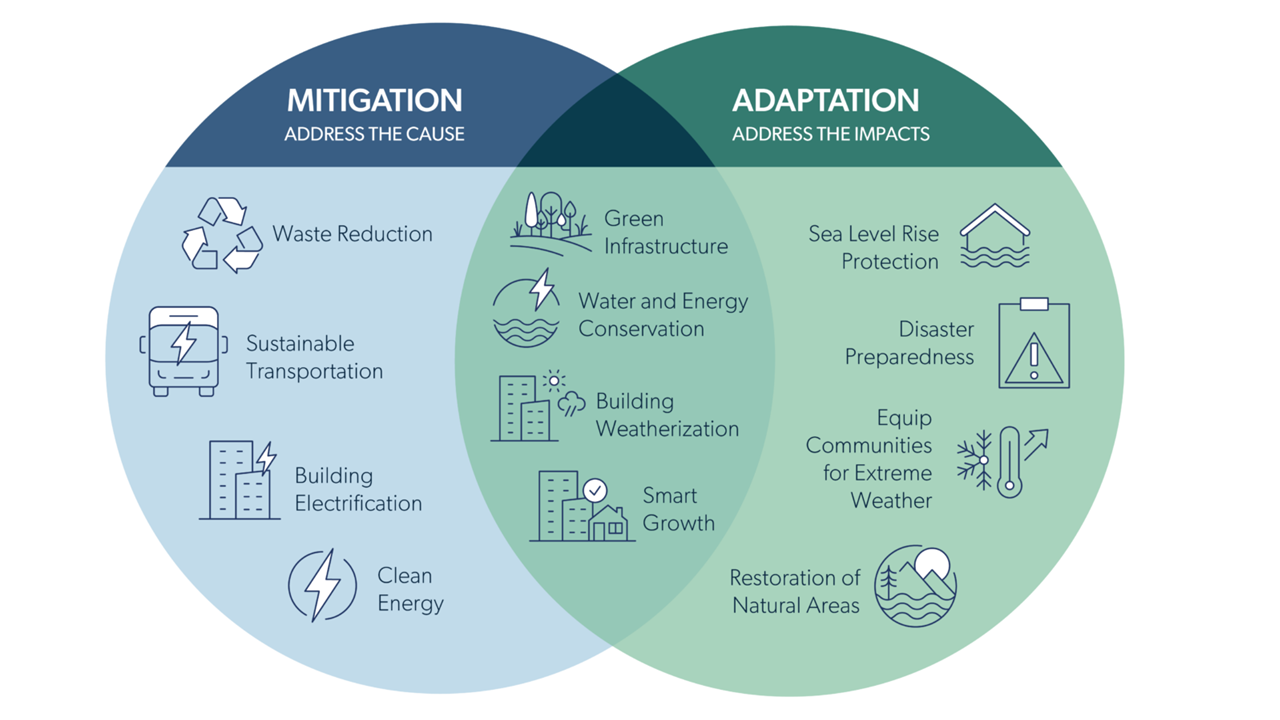Regional Resiliency Planning
As the Region begins to face an increase in extreme-weather related events, MVRPC wants to ensure our communities have the tools and knowledge to protect their residents and local economies. In order to create a resilient and sustainable region, it is necessary to incorporate practices that help us adapt and mitigate to this every changing climate. MVRPC worked with our members, stakeholders and resiliency experts to create tools and resources to support this effort.

Explore the pages below to learn more and find additional resources to support actions for a resilient Region.
Regional Resiliency Planning:
The regional resiliency planning effort utilized the National Disaster Recovery Framework as a guide to develop the work. Working groups were established to further support planning efforts.
Regional Resiliency Guidebook & Toolkit: As part of MVRPC’s efforts to ensure our region remains resilient and sustainable, the agency worked with the support of our consultant Sasaki & Associates to develop a Regional Resiliency Guidebook and Toolkit.
Resources: Additional resources not included in the Regional Resiliency Guidebook & Toolkit can be found here. These are resources meant to aid in increasing opportunities to incorporate resiliency into communities.
For questions or to submit ideas for additional resources please contact Elizabeth Baxter, Resiliency Planning Manager at ebaxter@mvrpc.org.

